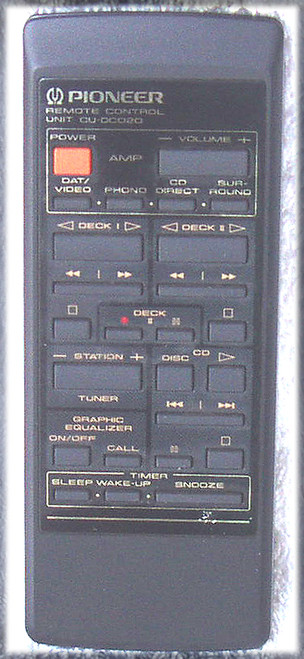DIGIDESIGN MIDI IO
2009 (ish)
1RU Rack mountable
Power either via USB port OR DC 12V @ 500mA
User manual supplied if requested (pdf format on a CDr)
USB cable (shown in the photographs) is provided with the MIDI IO
10 MIDI inputs
10 MIDI outputs
160 Channels total
Supports MIDI time stamping
Supports custom MIDI routing arrangements
Originally designed to run with Mac OS X & OS 9, Windows XP *** please see my notes below about this, it DOES work on Win 7 Home edition
COSMETIC CONDITION:
Very good condition
NO damage to the case or front panel
HISTORY:
We ran an audio post production facility for many years, part of our facilities involved voice-over work plus adding small amounts of music. Our sound engineer ran a Pro-Tools setup (I think it was Pro-Tools 9) and this MIDI equipment was part of his setup. We ceased operations in 2009, after 30 years, due to retirement and I have LOTS of gear still to find new homes/studios
Now here we are talking around 2009/2010 - an eternity in the world of computing, DAW's etc
This equipment was intended run on Mac OS-X, 9 or Windoze XP
TESTING:
As this gear has been in storage for quite a while, I decided to have a go at testing at least some of the functionality.
Powered up using both USB and a plug pack - both power sources work
NOTE: I am NOT supplying the plug pack, in most cases just power it via USB
I found an old PC, running Windows 7 Home Edition and set about finding drivers for this MIDI IO - not an easy task (even from Digidesign's website) but I did find the "latest" XP drivers, so I gave those a try out on the Windows 7 Home Edition machine (it was all I could find at short notice!)
Link to a source of Digidesign MIDI IO drivers for Mac & Windows XP https://avid.secure.force.com/pkb/articles/en_US/download/en355769
I downloaded the hardware drivers (although intended for Windows XP)
It looks to me that Digidesign hasn't provided any driver updates since around 2010, so I wouldn't be trying to run this on versions of Windows later than 7!
Fortunately no hiccups and the driver instal proceeded to completion without any error messages. I have taken a number of screenshots during the driver update process to show all went well.
I then went in the device manager where it told me that the firmware needed updating and so just clicked on a couple of buttons and the update was successfully completed.
During the firmware update process the front panel lights dance all over the place but according to the manual, this is perfectly normal during this process (reminded me of Gort "The Day The Earth Stood Still"). After powering down (as instructed in the manual) and restarting, the normal bootup sequence on the MIDI IO (leds lite up one by one from left to right then right to left and finally just the power on led remains on)
OK, enough of the fancy light display, now we can try and "talk & listen" to the MIDI IO via the Windows 7 machine.
I don't have Pro-Tools running here so I then downloaded the first piece of free midi software I could find for Windows, something called Anvil Studio. I wasn't really fussy which software I used, as it was to just test the ability of the MIDI IO to talk to the computer.
Once installed I opened Anvil Studio and ensured that it could see the MIDI IO system - confirmation of the connection between the software and the MIDI IO is via a green led on the MIDI IO (ONLINE) so all is good with the world and no problems thus far.
I then instructed Anvil Studio to send MIDI notes to the Digidesign MIDI IO on every channel, the corresponding channel (yellow) lit up correctly - this test was also fine, showing that midi signals being sent to the MIDI IO were being received and I could access every channel with no problems.
Next is to check the inputs to the MIDI IO. I don't normally have any MIDI output instruments available but then remembered I have this OLD KAWAI MDK3 and dug it out from the musical bits & pieces here, didn't even know if it still worked.
Plugged it into one of the MIDI IO ports, mapped the MIDI input to an output and started playing...it works! The MIDI IO yellow lights flash as I send MIDI codes and the software gives me some piano. While I was at it, i checked all the keys on the MDK3 and decided it was about time to "leave" home too, so it is also being offered now in a separate advertisement.
So there you have it, a pretty thorough going over and all looks to be fine with the MIDI IO - hope someone who is "into" their MIDI can make use of this equipment!



















